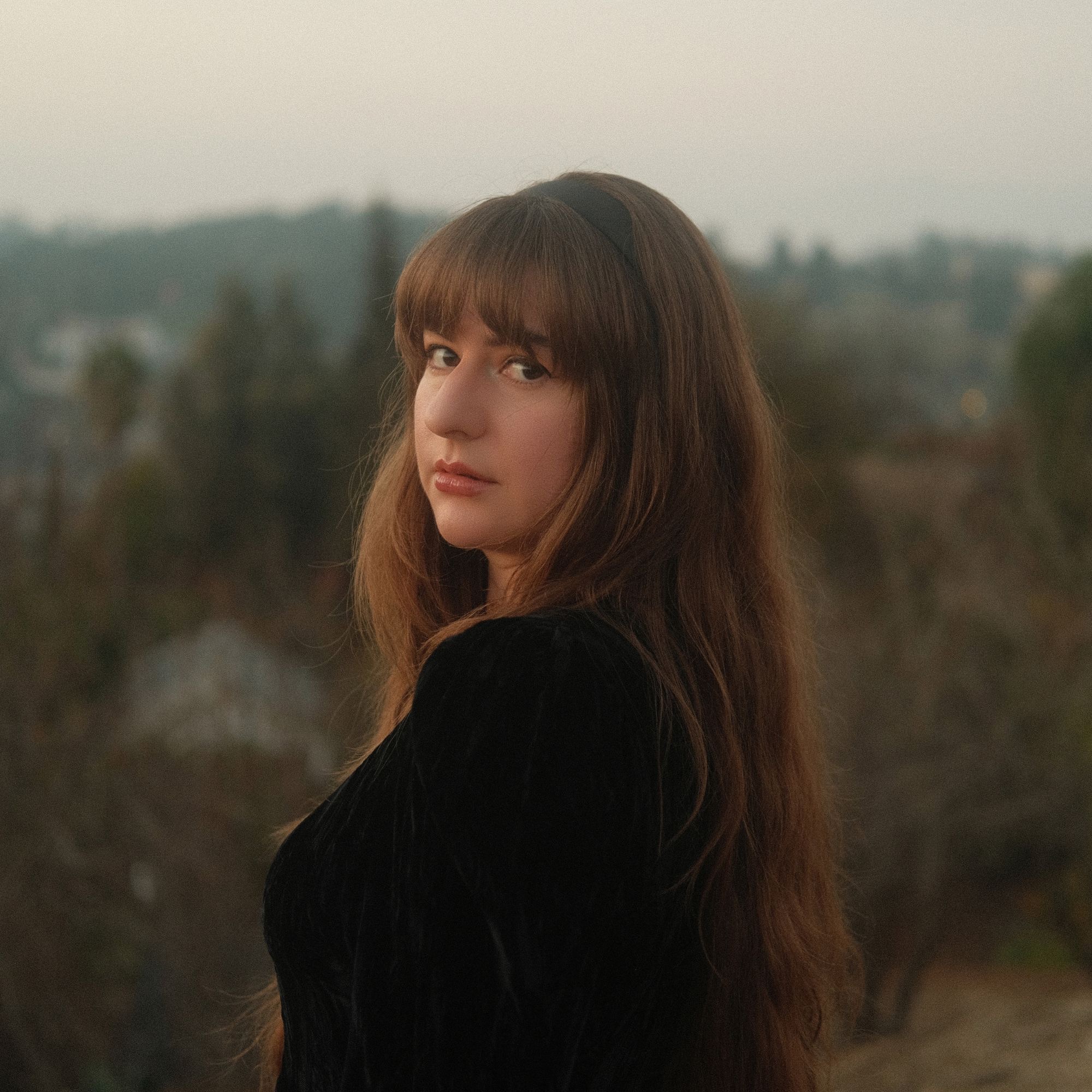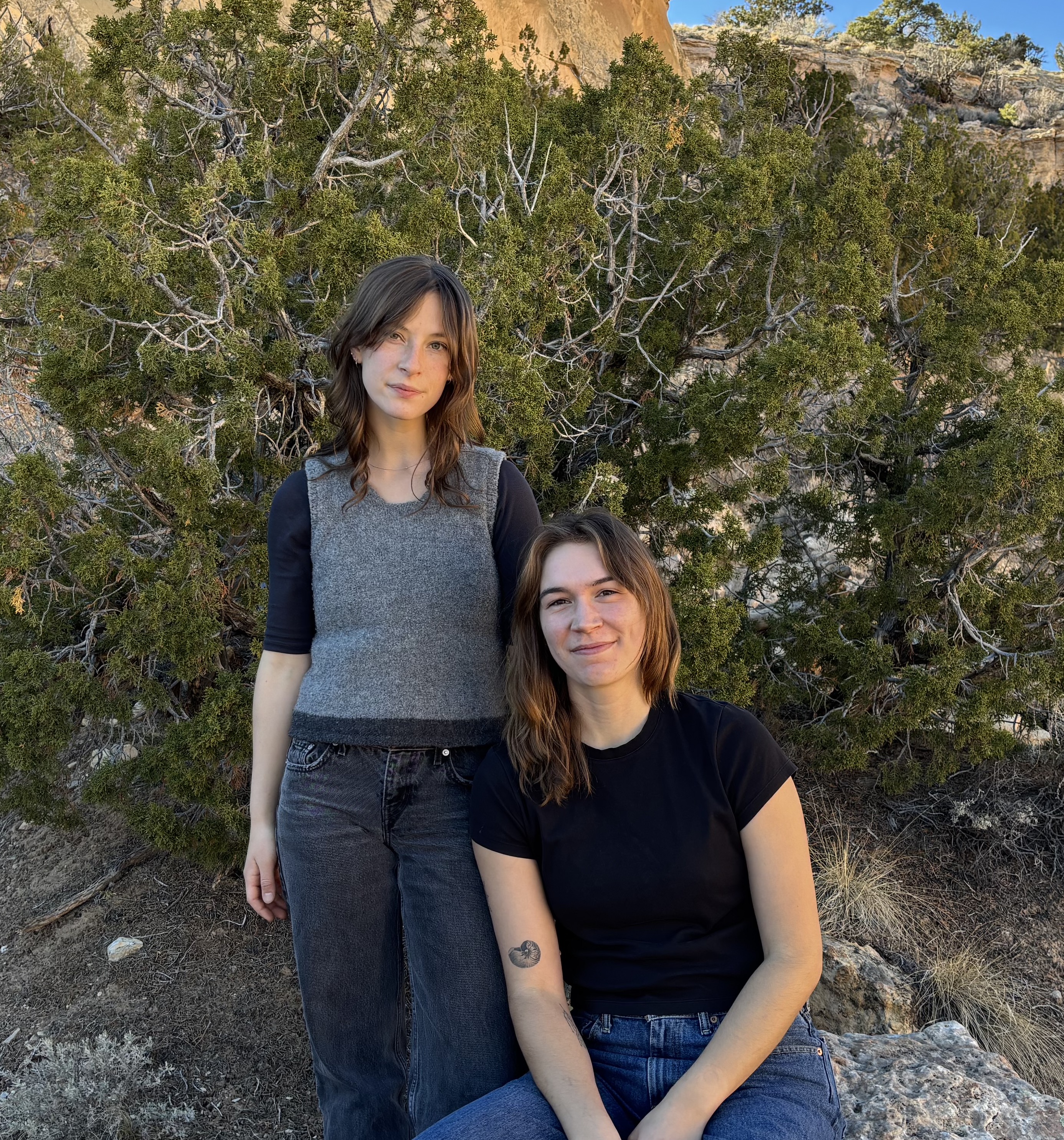Aiden Arata’s debut essay collection, You Have a New Memory (Grand Central Publishing, 2025) is a prismatic dispatch from the liminal space between on- and offline worlds. Across ten essays, Arata pans from the urban sprawl of Los Angeles, to cloisters in rural France, to the wilderness of the internet, probing the mundane and apocalyptic crises that lurch along human and geologic time scales.
Animating the links between the holy and the digital, the cosmic and memeified, the impulse to vibe and the impulse toward doom, she asks how we negotiate meaning and care in a world prone to combustion. As if referencing the text, Maia's building caught fire right before our Zoom call with Aiden started. Smoke began pouring through the floor. The this is fine meme came to mind, as did Aiden's words in her book's final essay: "the end of the world is an existential crisis without the luxury of philosophical distance."
Arata's writing has appeared in BOMB, Mask, n+1, NYLON, The Rumpus, The Fanzine, Wonderland, Hobart, and her newsletter, under the influence, among other publications. Her visual and video work has been featured in Vice, The Cut, Harper's Bazaar, Mashable, NBC, Seventeen, The Washington Post, and galleries across America. You Have a New Memory, out July 22, is her first essay collection.
As sirens rang toward Maia's building (e-bike explosion, no casualties), we spoke with Arata about doom, noticing, fake nuance, insomnia, vibes, and seeking the horizon.
***
Maia Sauer: In “On Vibing,” you highlight how the internet has stoked a renewed interest in vibes, which you link with New Age spirituality, 1970s-era astrology, and dissociative responses to nihilism. You speak to your attempt to transmute vibing into a more active state of “noticing.” What does noticing look like for you, these days?
Aiden Arata: I’ve mostly been noticing my inability to notice. The internet cauterizes noticing, I think, because it just shows you what to look at any given time. There are so many options all vying for [attention]. There [isn’t] a lot of space for marginalia, or for drifting off. I'm thinking about how many of our entire days are spent [looking] at something that's under six feet away. But as humans, we're supposed to be looking at the horizon, both for survival and Darwinian reasons, but also for philosophical reasons. The fact that we no longer seek the horizon——that our eyes are literally looking for it less——is so interesting to me, and sad.
It's tough, because I obviously work in digital spaces a lot, and that's kind of what gave me the opportunity to work [on this book] in an offline way. So I don't want to say the internet sucks. But also, having had the opportunity to work on a long-term, physical project like a book helped me to notice how bad the internet can be for writing. [Living in a digital world where] language is constantly reduced to its most blunt meaning can be very frustrating. So many times while I was writing the book, [autocorrect] would be like, did you mean to use this word? And I was like, no, bitch. Because sometimes I wanted the word that came at the meaning slanted. The perfect word is not the dictionary word all the time.
Olivia Q. Pintair: I'm just remembering a teacher in middle school who told us that we should look out at the horizon while doing work because it recalibrates your brain or something.
AA: That's so nice. Did you have a horizon in your classroom that you could look at?
OQP: Like, no? I think he was just kind of like, if you don't have a horizon, you could just look at a far-away distance. Or just look out the window. But it’s kind of profound——the idea that you have to look away from yourself sometimes. Away from what’s closest to you.
AA: Yes.
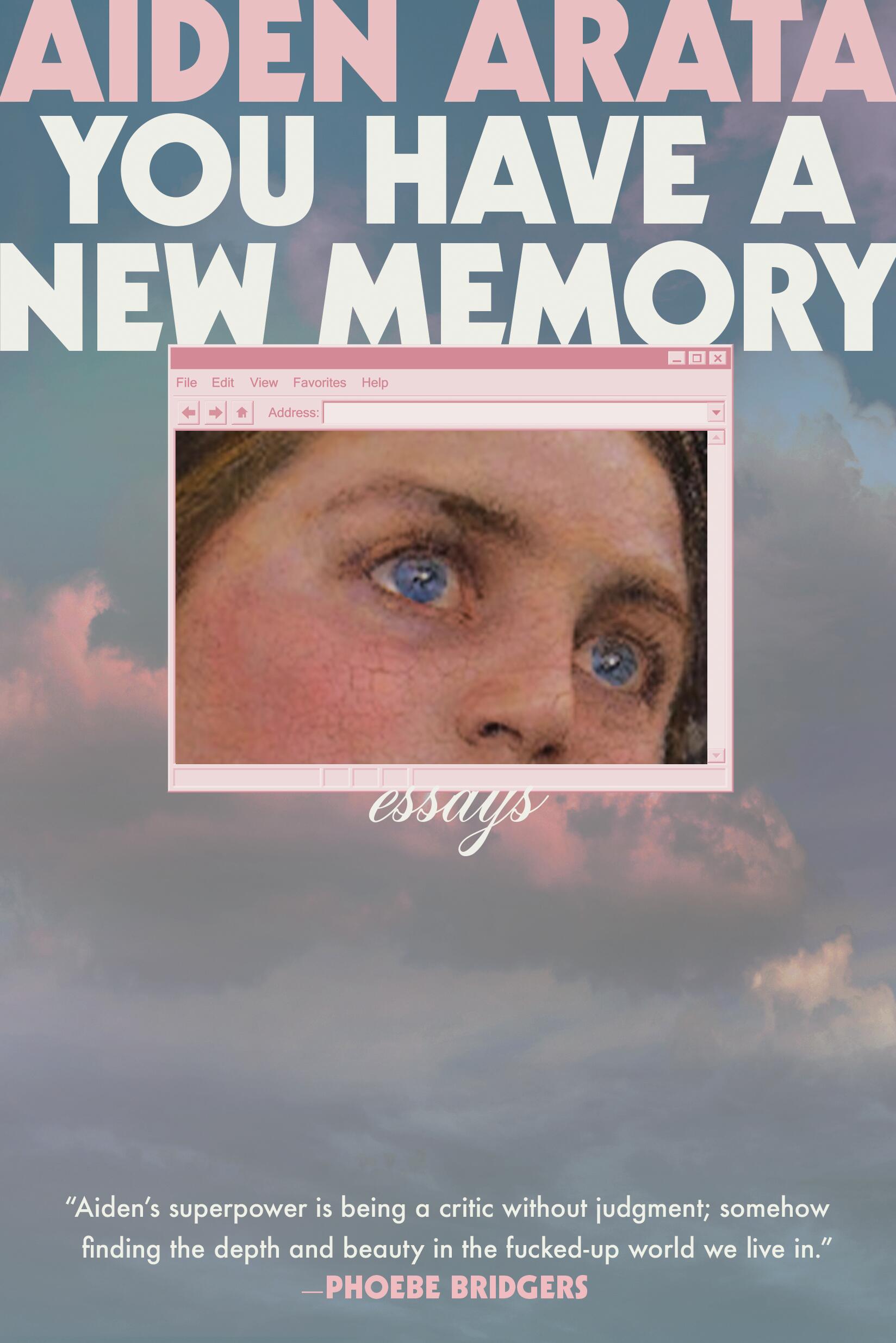
OQP: In your essay "Pink Skies Over the Empire," you write about an ancient human impulse to engage with the impermanence of selfhood through art, contrasting that urge with an opposing one fueled by the internet: to make the self eternal, immortalized in camera rolls, surveillance footage, and code.
I’m curious if your sense of meaning shifts based on the artistic medium you're working within. How did you relate to the idea of permanence while writing the book?
AA: I think it’s interesting that the differences between digital versus print or physical media feel so vast in terms of temporality. When you're making something online, it can reach so many more people, but its shelf life is so much shorter. I think all the time about I am cringe, but I am free, and the original person that made that meme. It’s like, just a picture of a goat, but it really transcended. It reached a point of cultural saturation, and became a thing that people say. But now it’s no longer attached to the original thing. To live on, on the internet, requires depersonalization. There has to be a certain loss of identity for something to keep living online. It has to change in the moment to become about whoever is encountering or sharing or metabolizing it.
The beautiful thing about a book is that it can have a really long life, although it's hard for me to conceptualize You Have a New Memory being more permanent in that way, or potentially having a longtime reach. My brain is so addled with short time.
It was interesting to write a book about the internet, since it was sort of a process of using the medium of long time to talk about short time. It was also a challenge to make something static that didn’t feel stale. How do you preserve something without killing it? I ended up writing about space and eternity a lot. I wanted to create an atmosphere that was aware of how simultaneously big and small this moment is. That was the most elegant solution I could think of to not make the writing incredibly cringe, I guess.
OQP: It also feels like the work does keep changing somehow, too. Like, even a physically static art piece changes as people read it, or as it enters into different relationships.
AA: Yeah, that's really beautiful. That it gets to take on new life with other people.
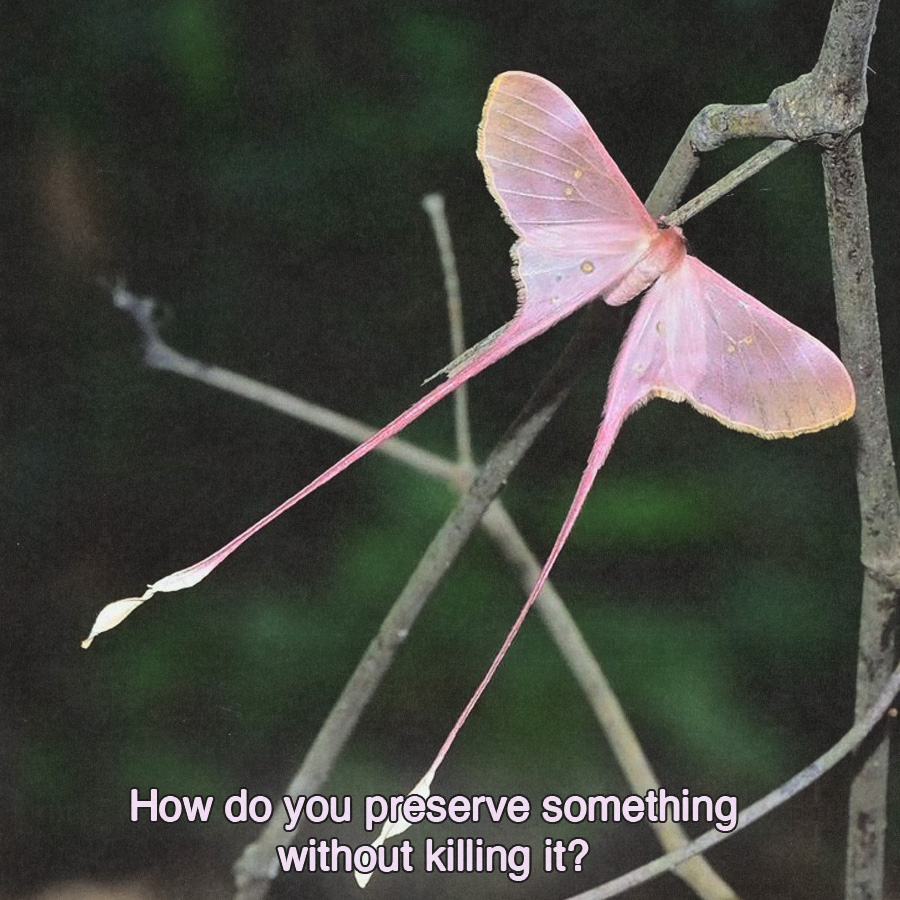
MS: Your essay “In Real Life” centers your time at a Carthusian monastery, where you consider a particular kind of spirituality that hinges upon isolation, silence, and what you call a “closed circuit” of devotion. Are there any other lessons from your time at the cloisters that didn’t make it into this essay?
AA: Honestly, what didn't make it into this essay is like 6,000 words about nature. It's funny, because I don't think it was necessarily a lesson-learning experience. I was so present that I wasn't learning. I was just there. I was describing plants that I saw and what the sunshine was like. And I brought the essay back, and I was like, here it is! And my editor was like, what the fuck is this? We can't put this in here. Like, please stop talking about this leaf. I'm very grateful for her. Like genuinely, thank God. She gave me a long lead to do what I wanted, and was very receptive, and also had no issue just being like, yeah, we need to cut this. So I don't know if there were any lessons, but there was a lot of description. I filled four yellow legal pads with writing from that time, which was only 10 days. It was not a long time.
OQP: Yeah, that's one of the more gut-wrenching things to me——to think about everything that can’t be remembered. It makes the world so beautiful and so sad.
AA: We dream alone.
OQP: Yeah… Well, speaking of dreams. You write from the liminal space between on- and offline worlds, often playing with time in your writing to mirror the oneiric pace of digital life. Particularly in the essay “America Online,” there’s a dreamlike logic that lends itself well to writing about the internet. Is dreaming part of your creative process? Any dreams you had while writing the book that stuck with you or informed what you wrote?
AA: My dreams do sometimes inform my fiction, but I think the experience of never having been a healthy sleeper is what really informs my work. I was a child insomniac, so I’ve never had normal sleep. I’ve spent so much time in the liminal, not-quite-asleep, not-quite-awake space where everything feels a little blurred at the edges. I sometimes feel like I move through the world with a sense of time-synesthesia: the feeling that any situation could be any other situation, or any thing could be any other thing. It often feels to me like everything is very metaphorically fraught. There's a flimsiness to the reality that's presented in front of me. I'm not fully dissociated, but it’s a little bit of that. Prolonged sleep-deprivation contributes.
It's an interesting way to move through the world, although I’ve been thinking about how I experience it less strongly when I'm just scrolling online. Your reality is constantly shifting when you're scrolling, but you’re not necessarily doing the dreamwork. There’s all of this unconscious that you’re not working through. You're just letting things happen. Jung would cry if he saw my TikTok feed.
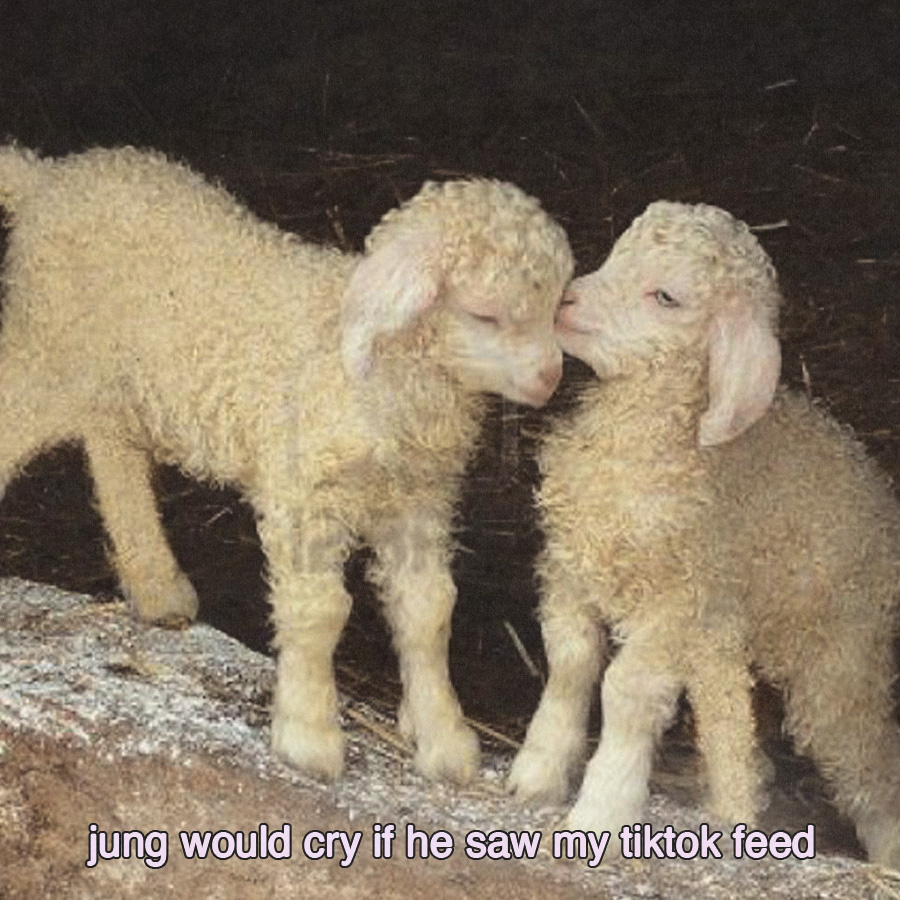
MS: I resonate with how you talk about doom in the book as a feeling that’s both diffuse in its overwhelm and specific in its composite parts. The internet is comprised of distinct voices, but its sheer vastness feels like such a magnifying lens for doom. In this book, you mention your “plastic bag theory” of the internet——the idea that it’s both disposable and forever. What’s your relationship to doom when you’re online these days?
AA: I mean, how could we not be haunted by the “disposable and forever” paradox? Especially when we think about the idea that most of what we're doing [as humans on Earth] is both disposable and forever. It lingers, but also it's meaningless. But I don't think our lives are meaningless. I feel like other people are so much better at describing this book than I am. People are like, what's it about? And I'm like, I have no idea. The writer, Michelle Tea, who is a genius and I love her work, wrote a really beautiful blurb for the book where she said that the book is about my insistence on finding meaning in the world. And I was like that! That's exactly what it is. Thank you Michelle Tea for saying that.
I think there is meaning, but it can be very easy to fall into the trap of doom. How can you go online and see the way that America is handling immigration, or the genocide in Palestine, and not be just completely humbled by how awful that is? But I sometimes wonder if we’ve reached a point of empathy saturation or something. In the early 2010s, Twitter was this space where activism seemed to do a lot. A lot of groups that historically did not have platforms were able to create this electronic whisper network that really helped people understand the horrors happening in the world via this larger digital stage. Now, it feels like that's still happening, but the amplification has become white noise. The powers that be certainly aren’t doing anything about it. They've made it very clear that they don't care, and are intentionally making things terrible. I think it’s good to feel a little doom on the internet and also to give yourself the space to log off. Doom can also be sort of self-flagellating. It can be an indulgence. But I think it’s important to let yourself feel bad. And then maybe start talking to someone about it in real life.
When I first started dating my now-husband, we didn't talk about world events. Privately, we both have strong values and strong political stances that are aligned, and yet we would just sort of be in our own internet worlds, being like this is all so fucked up, but not talking to each other about it. At some point, we had to sort of be like, I don't know how to do this interpersonally. It's cool to learn how to sit with that pain with someone you care about, if only to remember that you're not the only person in the world who thinks that something is wrong, or thinks we deserve better. I don't know what's gonna save us, but I do think community and IRL interaction is probably going to help.
OQP: I’m thinking about the essay “How to Do the Right Thing,” which deals with an instance of sexual assault and its aftermath on- and offline. I wanted to ask you about the struck-through text that repeats in that piece. How did you come to that structural choice?
AA: I guess that essay is sort of like a cursed choose-your-own-adventure. Every time there’s a strike, it's like you're scratching it out or starting over or being like, no, this is how you do the right thing. That essay was the hardest to write, for kind of obvious reasons. It felt so heavy that I needed to write it in a way that was a little bit more narratively structured. I wanted to create movement——to create these moments of catharsis or surprise or suspense, even. Changing directions after each strike-through allowed that story to feel heavy and hopefully also compelling. Entertaining is kind of a weird word. But I wanted it to be gripping. I wanted to keep people's interest while also delivering a strong moral point of view.
And there's a strong moral point of view in the essay, but there’s also a lot of ambiguity. So often I feel like when someone's like, let’s talk about this with nuance, what they mean is, we're on the side of the rapist. But that’s not nuance, actually. I was trying to approach the idea of justice from many different angles. To say there are so many problems. Nothing is working. That's not to say that justice is not possible, or that nothing works. But what if the ways we have to respond to rape aren't enough yet? How do you do things “right?” It’s really hard. I don't know.
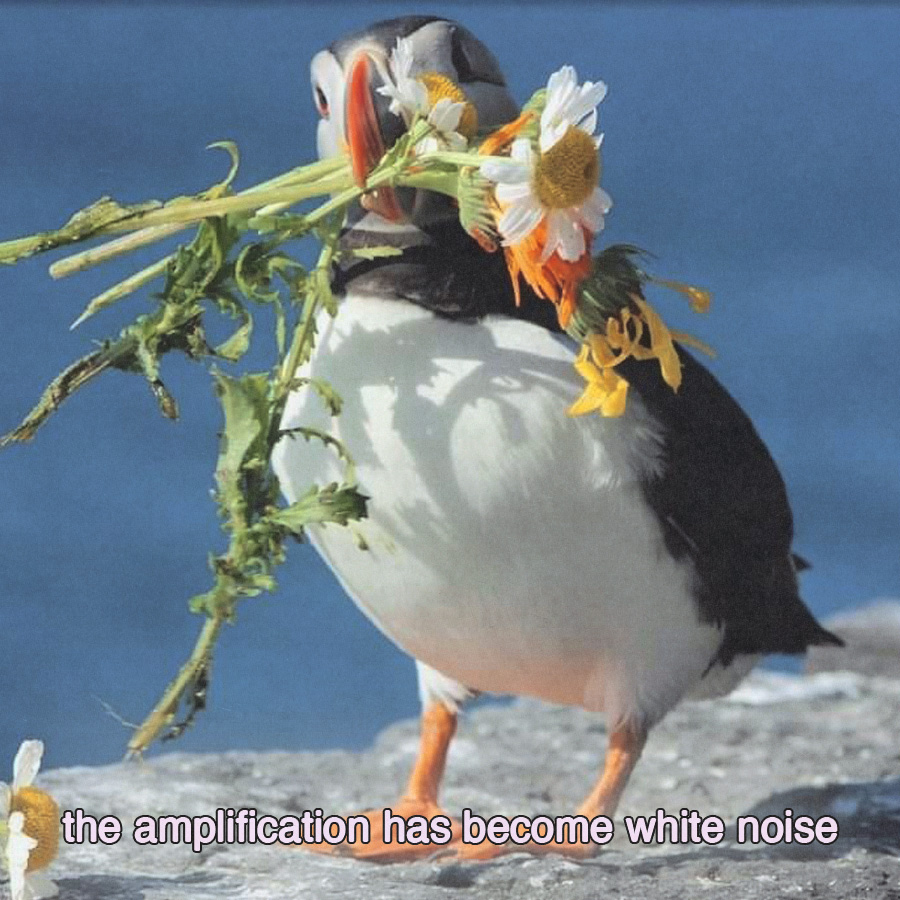
OQP: So many of these essays really sat in the “I don't know” of it all in a way that felt very honest and needed.
AA: Yeah. It's a weird book. It doesn't really fit in a lot of spaces. My friend Lucy told me recently to go to the bookstore and figure out where my book is going to be on the shelf, so my husband and I went to Barnes & Noble. We were wandering and wandering. We were like… social sciences? Tech? Like, it’s sort of computery? But then there were just books like Macbook for Dummies.
I would say the book is closer to philosophy than criticism. It's more about asking questions and trying to open possibility without overtly guiding the reader to come away with a particular take. Sometimes there's not a lot of room for ambiguity in literature, which is so funny. I was grateful that my editor was like, I want you to keep this weird.
OQP: I love that. Were there albums you listened to, books you read, or things you watched while writing the book that informed your experience of writing?
AA: I read Alexandra Tanner’s book, Worry. I read Rejection by Tony Tulathimutte. I read many scholarly articles about cognitive offloading and medieval visions. I read an 800 page book about the history of California.
If I can be totally candid, I didn't really know what the structure of an essay could be like, so I also bought three years of The Best American Essays collections. I was really hard on myself while writing. Like that sounds stupid, or that's not gonna work. But then while reading someone else, I was like, oh, they did that thing that I thought wasn’t allowed and it’s great.
OQP: Are there any questions you hoped someone would ask you about the book?
AA: Oh my god. I love that question. Many years ago, I was interviewing this New York hot girl for a magazine and I asked that, although I think I made the mistake of asking it first, [and she was like] oh, damn. You didn't prepare any questions, huh? I was like, oh no I'm so sorry. Like, I promise I have other questions!
OQP: Brutal.
AA: Honestly, I'm really stoked that you brought up “How To Do the Right Thing.” I know this is pretty early in the interview rollout, but I get the sense that there's maybe an inclination to not bring it up, or to overcompensate by talking about it as if it’s the center of the whole book.
OQP: Totally. It feels like a bit of a classic move to either avoid women’s pain entirely or to imagine it’s at the center of everything.
Do you feel like it’s possible to rest on the internet? Any favorite digital rest-stops or obscure online haunts?
AA: I kind of feel like maybe it's not possible to rest online? Or maybe it's a different type of rest. Resting is a spectrum. I love being on the internet, so I'm not gonna be like, throw your phone in the lake. But it’s a different type of rest. When you meditate or sleep, your body literally heals itself. I don't think that's happening while you're scrolling. But I do think you can find pleasure online. You can lose yourself in a nice way, and that's cool. I really like Are.na for that. I love going down rabbit holes of people’s collections. I also secretly love Google reviews. Sometimes I just open the map and click on a random restaurant and read all the reviews. I just find it really nice. It’s so earnest. I will leave a five star review for a local business like it’s nobody’s business, just on principle. It’s embarrassing, but I really love it.


